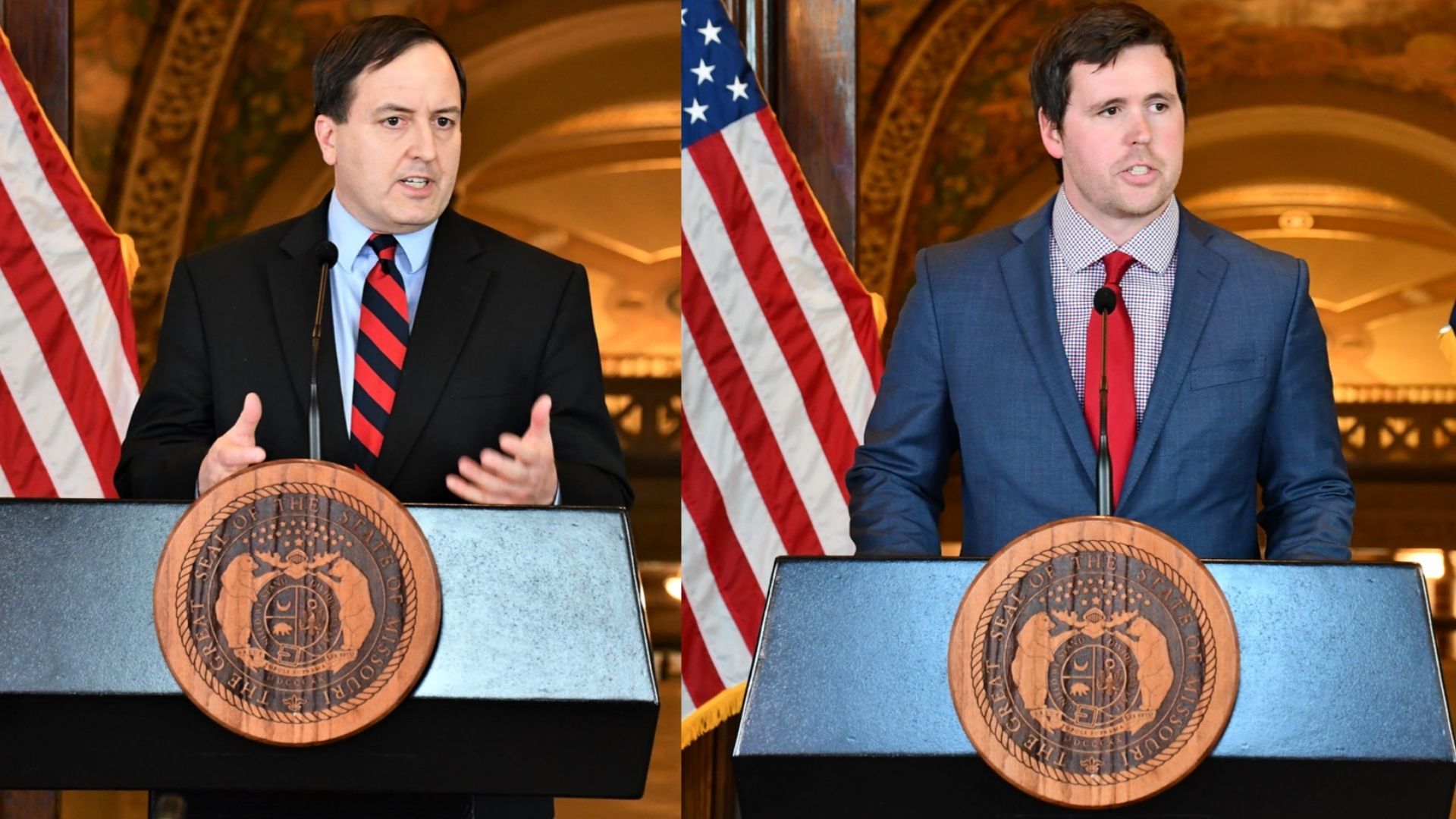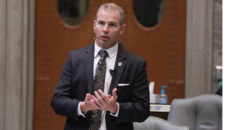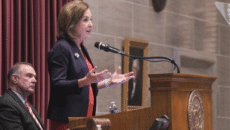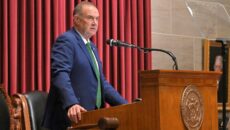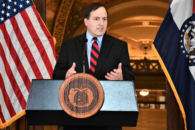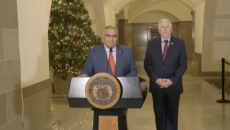JEFFERSON CITY, Mo. — The Secretary of State’s Office’s language for a ballot measure expanding the treasurer’s investment options can stand, a Cole County judge said this week.
Treasurer Scott Fitzpatrick had sued Secretary of State Jay Ashcroft over the proposed language earlier this year, calling it “erroneous and biased.” Amendment 1, which passed the legislature in May as HJR 35, would give Missouri’s state treasurer the ability to invest in certain municipal securities or in “other reasonable and prudent financial instruments and securities as otherwise provided by law” if approved by voters.
The ballot language provided by the Secretary of State’s Office asks voters if they wish to:
-
- allow the General Assembly to override the current constitutional restrictions of state investments by the state treasurer; and
- allow state investments in municipal securities possessing one of the top five highest long term ratings or the highest short term rating?
Additionally, the fair ballot language informs voters that a “yes” vote would:
“[A]mend the Missouri Constitution to grant the General Assembly statutory authority to invest state funds and also expand the state treasurer’s investment options. Currently the Constitution grants the General Assembly no statutory investment authority and limits the treasurer’s investment options. This amendment will allow the General Assembly by statute to determine investment avenues for the state treasurer to invest state funds, as well as allow the state treasurer to invest in municipal securities.”
Cole County Circuit Judge Daniel Green certified the secretary of state’s ballot language and said it “fairly and sufficiently summarizes Amendment 1.” He did amend the fair ballot language for the no portion to say:
“A ‘no’ vote will not amend the Missouri Constitution and limit the treasurer to investing state funds only in those investment options currently approved by the Constitution.”
 Loading...
Loading...
“We are pleased that the court ruled in our favor and that the Fair Ballot Language is certified to be used at all polling places,” Ashcroft said in a statement. “This was ridiculous from the beginning. It was a complete waste of taxpayer funds in an attempt to force a specific voter outcome on the amendment. I am pleased that the court affirmed that our summary of what the amendment would do was fair and sufficient.”
Mary Compton, a spokesperson for Fitzpatrick, said the office planned to appeal the decision.
“While the Treasurer is pleased the order made necessary changes to the fair ballot language that at least made it intelligible, we still believe the summary statement is unfair and will create a prejudice against the proposed amendment and the fair ballot language contains a plainly incorrect statement,” Compton said in an email. “As was always likely regardless of the initial outcome, this issue will be decided upon appeal.”
Fitzpatrick’s lawsuit had alleged the ballot language was “misleading and undeniably false” as the Missouri constitution already grants the treasurer “exclusive authority to invest state funds.” It also said the language would mislead voters to wrongly conclude the General Assembly would be the sole authority for determining investment opportunities for the state treasurer to utilize.
The lawsuit said the use of the word “override” was “intentionally argumentative and likely to create a prejudice against the proposed measure.”
This story has been updated to include a statement from the Treasurer’s Office.

Kaitlyn Schallhorn was the editor in chief of The Missouri Times from 2020-2022. She joined the newspaper in early 2019 after working as a reporter for Fox News in New York City.
Throughout her career, Kaitlyn has covered political campaigns across the U.S., including the 2016 presidential election, and humanitarian aid efforts in Africa and the Middle East.
She is a native of Missouri who studied journalism at Winthrop University in South Carolina. She is also an alumna of the National Journalism Center in Washington, D.C.
Contact Kaitlyn at kaitlyn@themissouritimes.com.

